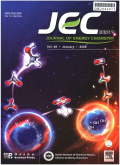- 钛学术文献服务平台 \
- 学术期刊 \
- 工业技术期刊 \
- 石油与天然气工业期刊 \
- 能源化学期刊 \
Innovative strategies toward challenges in PV-powered electrochemical CO2 reduction
Innovative strategies toward challenges in PV-powered electrochemical CO2 reduction
基本信息来源于合作网站,原文需代理用户跳转至来源网站获取
摘要:
The solar energy-driven electrochemical CO2 reduction to value-added fuels or chemicals is considered as an attractive path to store renewable energy in the form of chemical energy to close the carbon cycle.However,CO2 reduction suffers from a number of challenges including slow reaction rates,low selectiv-ity,and low energy conversion efficiency.Recently,innovative strategies have been developed to mitigate this challenges.Especially the development of flow cell reactors with a gas diffusion electrode,ionic liq-uid electrolytes,and new electrocatalysts have dramatically improved the reaction rates and selectivity to desired products.In this perspective,we highlight the key recent developments and challenges in PV-powered electrochemical CO2 reduction and propose effective strategies to improve the reaction kinetics,to minimize the electrical energy losses,and to tune the selectivity of the catalysts for desired products,and then suggest future direction of research and development.

推荐文章
油田CO2驱采出气中CO2循环回收技术进展
CO2驱采出气
化学吸收法
变压吸附法
膜分离法
低温精馏法
油田CO2驱产出气处置方案及CO2捕集回注工艺
二氧化碳驱
二氧化碳捕集
方案选择
案例分析
CO2腐蚀与防护研究
CO2
腐蚀
机理
影响因素
防护措施
纯CO2的节流特性
CO2
碳捕集与封存
节流特性
节流控制
焦耳—汤姆逊效应
临界点
安全泄放
内容分析
关键词云
关键词热度
相关文献总数
(/次)
(/年)
引文网络
引文网络
二级参考文献 (0)
共引文献 (0)
参考文献 (0)
节点文献
引证文献 (0)
同被引文献 (0)
二级引证文献 (0)
2021(0)
- 参考文献(0)
- 二级参考文献(0)
- 引证文献(0)
- 二级引证文献(0)
引文网络交叉学科
相关学者/机构
期刊影响力
能源化学
主办单位:
中国科学院大连化学物理研究所
中国科学院成都有机化学研究所
出版周期:
双月刊
ISSN:
2095-4956
CN:
10-1287/O6
开本:
出版地:
大连市中山路457号
邮发代号:
创刊时间:
语种:
eng
出版文献量(篇)
2804
总下载数(次)
0
总被引数(次)
7996
期刊文献
相关文献
推荐文献
- 期刊分类
- 期刊(年)
- 期刊(期)
- 期刊推荐
一般工业技术
交通运输
军事科技
冶金工业
动力工程
化学工业
原子能技术
大学学报
建筑科学
无线电电子学与电信技术
机械与仪表工业
水利工程
环境科学与安全科学
电工技术
石油与天然气工业
矿业工程
自动化技术与计算机技术
航空航天
轻工业与手工业
金属学与金属工艺
能源化学2022
能源化学2021
能源化学2020
能源化学2019
能源化学2018
能源化学2017
能源化学2016
能源化学2015
能源化学2014
能源化学2013
能源化学2012
能源化学2011
能源化学2010
能源化学2009
能源化学2008
能源化学2007
能源化学2006
能源化学2005
能源化学2004
能源化学2003
能源化学2002
能源化学2001
能源化学2021年第9期
能源化学2021年第8期
能源化学2021年第7期
能源化学2021年第6期
能源化学2021年第5期
能源化学2021年第4期
能源化学2021年第3期
能源化学2021年第2期
能源化学2021年第12期
能源化学2021年第1期

 免费查重
免费查重










